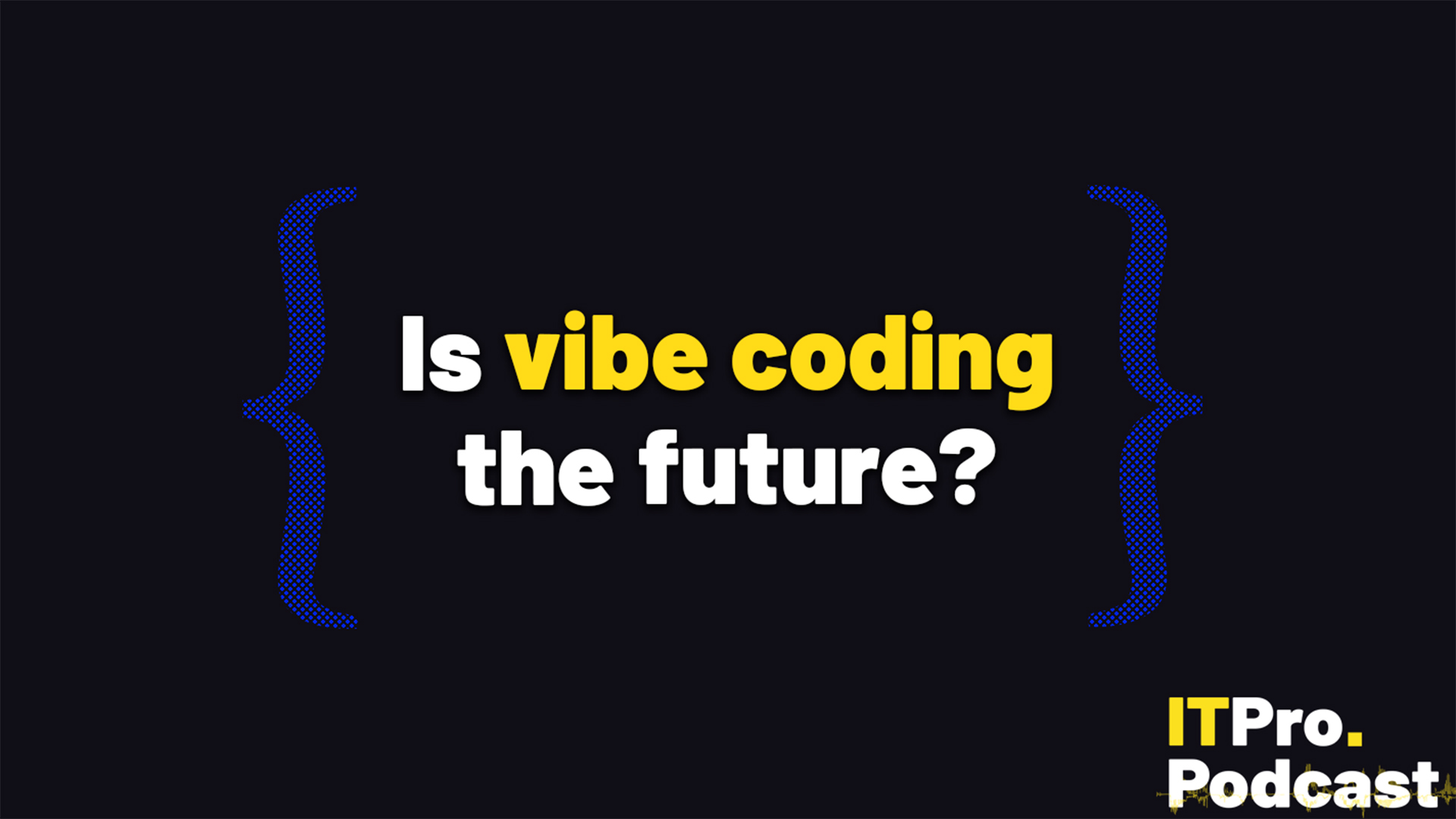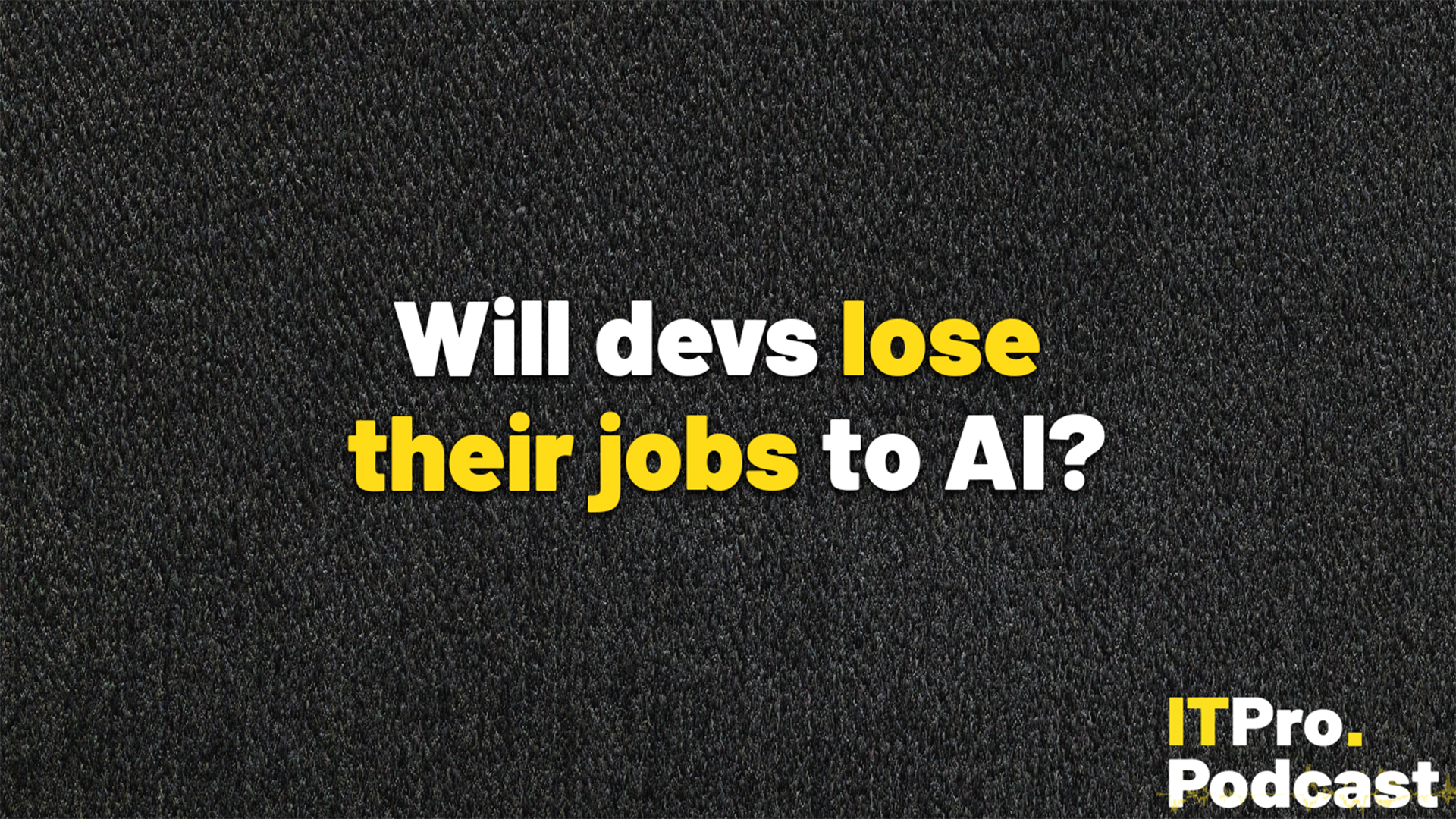Is vibe coding the future?
As developers use AI to speed up code generation, leaders must work to ensure the technology complements existing practices


Sign up today and you will receive a free copy of our Future Focus 2025 report - the leading guidance on AI, cybersecurity and other IT challenges as per 700+ senior executives
You are now subscribed
Your newsletter sign-up was successful
As developers have embraced AI to a greater degree, many have hailed the rise of so called vibe coding, in which broad prompts are given to AI models to produce refined code that's actionable and in many cases deployable.
But vibe coding also comes with risks, because by its very nature it's more of a hands-off activity. It decreases the degree to which developers can explain what their code is doing, and may lead to them overlooking vulnerabilities.
How serious is this risk, and what are the potential benefits of vibe coding in the future?
In this episode, Rory speaks to Simon Black, director of evangelism at Mendix, to unpack what vibe coding is and why it comes with such high risks.
Highlights
"I think currently, vibe coding and the process of vibe coding has some of limitations. I think the challenge of vibe coding is that they are trying to speed up the part of development that people find most difficult, which is writing the code. And you know that that comes with a lot of advantages. You can get things done very, very quickly, but it often forgets about all the other challenges with software development, things like being able to do peer reviews, being able to improve the deployment, the full software development life cycle."
"You need to need to give it context of your organization and how it builds software. Not just the code but how do I evaluate what type of software we should even be building as an organization? How do I assign the value to it? How do I understand which projects to pick first? You need to be able to give it context around how you govern, how you audit projects."
"They've taken a coders' approach to a no coders' world. Let's say it makes sense. So they've gone, okay, well, we need to build applications quicker. The best way we can do that is by giving AI the ability to generate code. Okay, great. That works if you're giving to a developer audience, not so great if you're giving it to maybe more of a citizen developer, or someone that is not from a software development background, and expecting them to understand, you know, TypeScript or understand React code or understand how databases work and so on.
Sign up today and you will receive a free copy of our Future Focus 2025 report - the leading guidance on AI, cybersecurity and other IT challenges as per 700+ senior executives
Footnotes
- Senior developers are all in on vibe coding, but junior staff lack the experience to spot critical flaws
- Want to supercharge your vibe coding skills? Here are the best AI models developers can use to generate secure code
- AI coding really isn't living up to expectations – "the savings have been unremarkable" but not for the reason you might think
- Researchers tested over 100 leading AI models on coding tasks — nearly half produced glaring security flaws
- MCP servers used by developers and 'vibe coders' are riddled with vulnerabilities – here’s what you need to know
- The Replit vibe coding incident gives us a glimpse into why developers are still wary of AI coding assistants
Subscribe
- Subscribe to The IT Pro Podcast on Apple Podcasts
- Subscribe to The IT Pro Podcast on Spotify
- Subscribe to the IT Pro newsletter
- Join us on LinkedIn

Rory Bathgate is Features and Multimedia Editor at ITPro, overseeing all in-depth content and case studies. He can also be found co-hosting the ITPro Podcast with Jane McCallion, swapping a keyboard for a microphone to discuss the latest learnings with thought leaders from across the tech sector.
In his free time, Rory enjoys photography, video editing, and good science fiction. After graduating from the University of Kent with a BA in English and American Literature, Rory undertook an MA in Eighteenth-Century Studies at King’s College London. He joined ITPro in 2022 as a graduate, following four years in student journalism. You can contact Rory at rory.bathgate@futurenet.com or on LinkedIn.
-
 Mistral CEO Arthur Mensch thinks 50% of SaaS solutions could be supplanted by AI
Mistral CEO Arthur Mensch thinks 50% of SaaS solutions could be supplanted by AINews Mensch’s comments come amidst rising concerns about the impact of AI on traditional software
-
 Westcon-Comstor and UiPath forge closer ties in EU growth drive
Westcon-Comstor and UiPath forge closer ties in EU growth driveNews The duo have announced a new pan-European distribution deal to drive services-led AI automation growth
-
 The agentic identity crisis
The agentic identity crisisITPro Podcast With millions of AI agents being deployed, how can security teams maintain oversight and governance?
-
 Building a secure payments strategy
Building a secure payments strategySponsored Podcast Facilitating a smooth payments experience for iGaming can go hand-in-hand with building a more secure platform
-
 Mitigating bad bots
Mitigating bad botsSponsored Podcast Web crawlers pose an immediate business risk, necessitating immediate action from IT leaders
-
 Why do AI projects fail?
Why do AI projects fail?ITPro Podcast Without a careful approach at the design phase, AI tools will fall apart in runtime
-
 September rundown: The UK becomes an AI playground
September rundown: The UK becomes an AI playgroundITPro Podcast Big tech has announced tens of billions in infrastructure investments for the UK – how will it help?
-
 August rundown: Are AI job losses a fantasy?
August rundown: Are AI job losses a fantasy?ITPro Podcast AWS CEO Matt Garman's comments were made as big tech continues to lay off workers – but AI may not be the cause
-
 Will devs lose their jobs to AI?
Will devs lose their jobs to AI?ITPro Podcast Major errors in AI code generation throw doubt on the timeline to replacing human workers
-
 Google Cloud Summit London 2025: Practical AI deployment
Google Cloud Summit London 2025: Practical AI deploymentITPro Podcast As startups take hold of technologies such as AI agents, where is the sector headed?